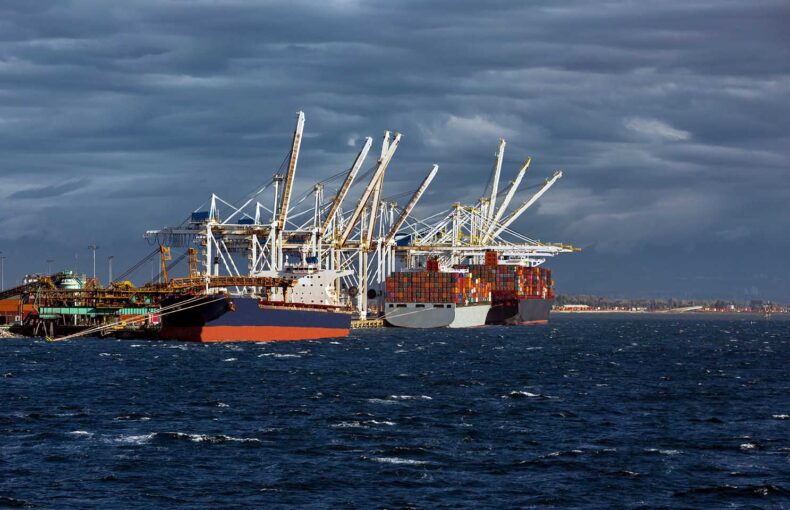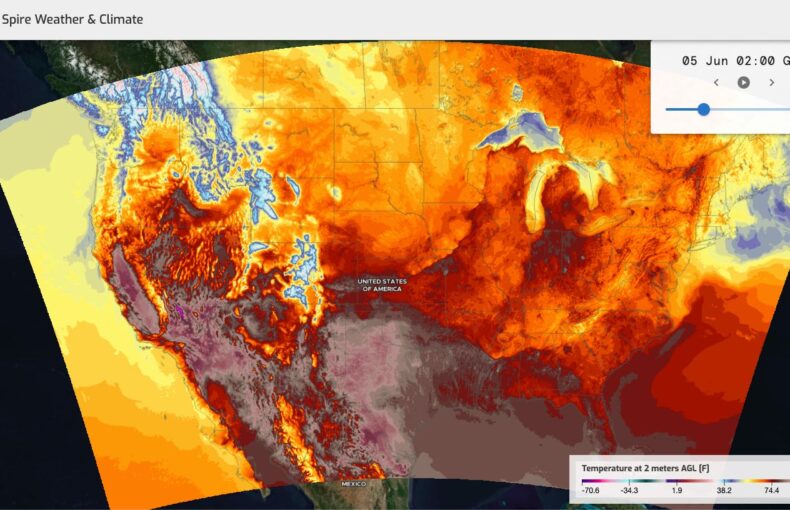METIS Cyberspace Technology: Shaping the future of digital shipping
Removing maritime blind spots for shipping operators
![]()
In 2016, a group of seven innovative maritime engineers recognized the emerging digital divide that could impact service quality and industry profitability.
Removing maritime blind spots for shipping operators
![]()
This dynamic septet joined forces to establish METIS Cyberspace Technology S.A., a hub dedicated to harnessing the transformative power of the Fourth Industrial Revolution for the maritime sector.
Their motivation sprang from observing the adverse effects of delayed digitization on profitability and service quality within the maritime industry. They also recognized the inadequacies of quick-fix solutions that failed to effectively address long-standing challenges. METIS’s core mission centers around the conversion of raw data into actionable intelligence to drive industry growth.
Through collaboration with Spire, METIS facilitates secure and efficient maritime operations for its clients. This strategic partnership empowers ship operators and navigators to strategize routes that optimize fuel consumption, reduce voyage durations, and enhance safety in open waters.
Sea-farers are vulnerable to the forces of nature out on the high seas. Knowing what the coming weather will be like is paramount to maintain safety of crew, cargo and vessel. Weather data assumes a pivotal role in identifying favorable wind and current patterns, allowing vessels to harness natural meteorological events for propulsion, resulting in cost-efficiency and a reduction in greenhouse gas emissions.
Beyond cost considerations, the prioritization of weather data is indispensable for the welfare of both crew and cargo. The integration of weather information into voyage planning and execution provides the maritime transportation sector with the capacity for informed real-time decision-making and efficient route adjustments, culminating in an overall enhancement of operational performance.
Moreover, METIS assumes a crucial role in calculating the impact of weather conditions on fuel consumption, a pivotal factor in the evaluation of vessel performance. Weather data also finds utility in Charter party Agreements, enabling precise comparisons between agreed-upon performance and actual outcomes.
Maintaining zero blind spots for increased global weather coverage
METIS leverages Spire’s satellite-powered maritime weather datasets to integrate weather data, underpinning the platform’s accuracy and reliability. Specifically, METIS ingests global grid forecasts through an incoming dataset update every six hours. This approach streamlines query time and enables the handling of thousands of forecasting requests, a necessity for optimization algorithms.
A key differentiator for Spire lies in its satellite constellation, which significantly improves global coverage. This absence of blind spots and areas with limited forecasts enhances the performance of optimization algorithms, as they heavily rely on forecast accuracy.
Share on Facebook Share on Twitter Share on LinkedIn
METIS utilizes weather forecasts from Spire in conjunction with AIS and historical weather data. Historical weather data are essential for voyage simulations, allowing for algorithm adjustments and the evaluation of optimization performance and proposed routes. The ability to run such simulations based on accurate historical data, rather than forecasts, empowers the engineering team to refine algorithms and approaches effectively.
Furthermore, METIS receives AIS and weather data (historical and predictive) from Spire, with the partnership occasionally operating in a bidirectional fashion. METIS employs onboard sensors to provide real-time vessel weather data, including SpeedLog data for current verification, anemometer data for wind force confirmation, and wave radars for swell and wave validation. This two-way collaboration allows both Spire and METIS to enhance the quality and transparency of weather forecasts through performance review projects.
Charting efficient courses with advanced maritime tech solutions
The heart of METIS is its in-house automated Data Acquisition System, which holds prestigious certifications: ‘Lloyd’s Register Type Approval Certificate’ for marine, offshore, and industrial applications, and a Cyber Resilience Type Approval by BV. These certifications assure clients of a reliable platform adhering to recognized Industry Quality Standards and International Conventions.
METIS’s impact on the maritime industry has been significant given the short time it has been in operation:
- Over 350 vessels are currently registered on the METIS platform, demonstrating widespread adoption (METIS Cyberspace Technology S.A. internal data, 2023).
- The platform processes more than 10 billion performance data points monthly, highlighting its robust data-handling capabilities (METIS Cyberspace Technology S.A. internal data, 2023).
- METIS generates specialized analytics for various roles, departments, and management levels, showcasing its versatility in catering to diverse maritime needs (METIS Cyberspace Technology S.A. internal data, 2023).
Navigating ships safely, cost-effectively, and with minimal environmental impact demands a precise balancing act reliant on timely, well-informed decisions. In cases where the power of raw data, on its own, falls short of delivering actionable insights is where artificial intelligence steps in to transform the maritime landscape.
In the realm of ship efficiency, objectives such as cost savings on fuel and environmental responsibility are not conflicting but rather complementary. Achieving both requires a comprehensive understanding of the multifaceted factors, both internal and external, influencing vessel performance.
Data, spanning machinery performance, the vessel’s physical condition, weather forecasts, and charterer expectations, has assumed paramount importance. However, the true value lies in harnessing this data to bolster decision-making that prioritizes vessel safety, profitability, and a reduced carbon footprint.
This is the heart of what METIS embodies. The AI-driven METIS platform seamlessly integrates real-time vessel-performance analysis with proactive decision support, offering shipping companies the means to transform raw data collected from onboard IoT devices into invaluable insights.
Leveraging advanced Machine Learning and Artificial Intelligence techniques, METIS empowers shipping companies to:
- Assess Past Performance: Gain a reliable assessment of their vessels’ historical performance.
- Monitor Real-Time Operations: Keep a vigilant eye on current operations in real time.
- Predict Future Behavior: Accurately anticipate vessel behavior in the future.
Ultimately, METIS’s technology empowers customers to minimize costs, optimize operational efficiency, streamline maintenance processes, and ensure unwavering regulatory compliance.
While data in shipping is more abundant and accessible than ever before, a lack of standardization in onboard equipment makes it difficult to leverage. The METIS solution is helping to bring together data from multiple sources and reveal the ‘big picture’ on ship performance.
For example, the ability to model ‘what-if’ scenarios enables users to determine the route that best combines safety, voyage time, fuel efficiency and minimum possible carbon footprint.
Another METIS software module provides a different angle on ship efficiency, allowing operators to monitor performance in line with the terms stipulated in charter party agreements (CPAs). With analysis drawing on data points including weather, maneuvering and speed, the module offers a complete representation of a vessel’s CPA compliance – to the benefit of both operator and charterer.
Meanwhile, personnel and stakeholders onboard and ashore have immediate access to real-time insights and interactive support through the METIS Virtual Personal Assistant.
As shipping’s first chatbot, the Assistant communicates with users in plain English, sharing vessel performance analyses, informing of machinery malfunctions and assisting with voyage planning and maintenance scheduling. Thanks to its underlying machine learning technology, the chatbot also refines its insights and recommendations over time.
METIS aggregates maritime weather data in real-time such as wind, swell, wave, seawater and ice, and delivers forecast insights, significantly increasing the accuracy and the value to the end customer.
Shaping the future of digital shipping
METIS envisions a future where technology plays a pivotal role in transforming the industry into a highly digitized and technologically savvy industry.
The convergence of various technologies, data analytics, and digital solutions will bring about significant changes and benefits. Most importantly, data availability and specialized weather intelligence will be an integral part of this transformation since the relation of weather with safety, risk, optimization, and efficiency is as old as shipping.
Also, one of the key drivers of digitalization in the maritime industry will be the widespread adoption of the Internet of Things (IoT) and sensor technologies. Smart sensors placed throughout vessels and maritime infrastructure will enable real-time data collection on various parameters, equipment performance, fuel consumption, cargo status, and vessel health. This data will provide valuable insights to optimize operations, enhance safety, and reduce costs.
With the vast amounts of data generated from IoT sensors and other sources, advanced data analytics and artificial intelligence (AI) will be crucial in making sense of the information. Machine learning algorithms can analyze historical data, weather patterns, and vessel behavior to predict potential challenges, optimize routes, and improve fuel efficiency. AI-powered predictive maintenance will also help prevent breakdowns and reduce downtime.
Weather is a critical factor in maritime operations, influencing routes, cargo planning, and safety. In the future, the maritime industry will heavily rely on accurate and real-time weather data from satellites, buoys, and other sources. Integrating this data into navigation systems and onboard decision-making tools will enable captains and fleet managers to make informed decisions and navigate the most efficient and safe routes.
Digitalization will enable the maritime industry to better monitor and manage its environmental impact. Data-driven insights will facilitate the implementation of greener practices, such as optimizing routes for fuel efficiency, reducing emissions, and adopting alternative fuels.
Share on Facebook Share on Twitter Share on LinkedIn
To fully realize the benefits of digitalization, collaboration among industry stakeholders will be essential. The establishment of common standards and data-sharing protocols will facilitate interoperability and seamless integration of various digital solutions across the maritime ecosystem.
In conclusion, the future of the maritime industry will be shaped by digitalization, reliance on weather data, and technological advancement. Embracing these changes will enhance efficiency, safety, sustainability, and profitability, ushering in a new era of innovation and progress for the maritime sector.



